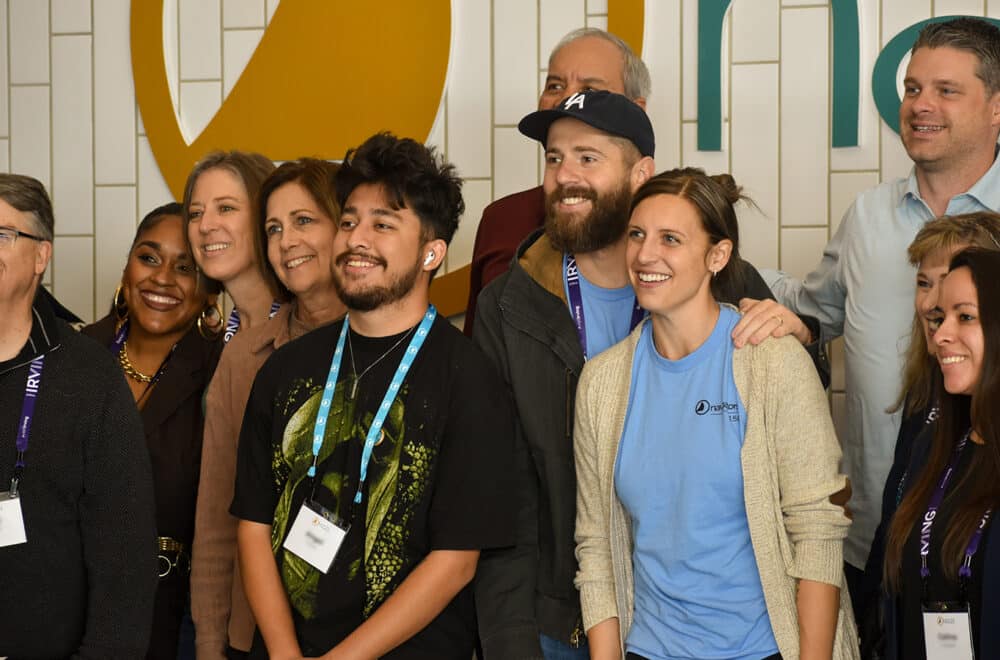The United States is home to more than 50 million Hispanic Americans, who comprise 16 percent of our country’s total population. Since 1968, Hispanic Heritage Month has served to celebrate the histories, cultures, and contributions of these American citizens descended from Spain, Mexico, the Caribbean, and Central and South America. The timing of Hispanic Heritage Month, September 15 to October 15, corresponds to the independence days of five Central American countries, in addition to Mexico and Chile.
We asked several of our Navigator staff members to weigh in on the important role the Hispanic population plays in our nation and our mission to advance the Gospel.
What do you love most about Hispanic culture?
- Hispanic cultures are very family-oriented and love eating. We typically have an “open-door policy,” which welcomes folks at any time. We expect them to sit down and have some café con leche (coffee with milk) or a meal with us. We tend to be loud, speak all at once, and yet understand and hear one another. —Jose Lamberty, Church Discipleship Ministry, Florida
- I love how Hispanics give priority to being with friends and family on a regular basis, and how friends remain friends for a lifetime. I also love how children are always greeted and valued by adults. —Peggy Reynoso, Training and Development, Colorado
- I have never received so many hugs and kisses as I have from the Spanish people we have pastored. They are so kind-hearted and loving. They also want to learn. They yearn to learn! —Pam Finstrom, Church Discipleship Ministry, Pacific Northwest
- I just love the Mexican culture because it is in my blood—the food (enchiladas and menudo), the Spanish language, the Mexican music (mariachi bands), and the family-like relationships. —Bob Adame, Church Discipleship Ministry, Pacific Southwest
How does the Hispanic culture influence your faith or your expression of faith?
- There are unique attributes in the culture like music, art, and food that allow me to feel God’s presence and see that He is actively reaching out to the Hispanic people throughout the United States —Alex Mata, Metro Mission, Pacific Southwest
- The opportunity to serve others is important to our culture. We can relate to Jesus and how He interacted with people because He was so relational. —Jose Lamberty
- Hispanic friends taught me not only how to value people, but also how to celebrate and enjoy them. As a result, I believe from the heart that God not only values me, but He also enjoys me. —Peggy Reynoso
- “La Familia” has been our greatest asset in reaching Hispanics. Valuing family and the extended family enables us to minister generationally. —Cesar Vega, Hispanic Leadership Team, Church Discipleship Ministry, Florida
How do you address some of the unique challenges of reaching this diverse culture?
- Since I am a third-generation Mexican American, I fit right in with this culture. The greatest danger for me in reaching Hispanics is to begin to think, plan and strategize as if I were in an Anglo culture. —Bob Adame
- One of the biggest challenges in my culture is overcoming falsehoods and lies that keep people from embracing the pureness of the Gospel. Another challenge is finding passionate labors who know how to reach Hispanic people for Christ without making them give up their culture. —Alex Mata
- After pastoring a Spanish church and serving other pastors of Spanish churches, I have learned that the simple things of the Word of God are most profound to them and to leave the theological debates to the theologians. Introducing people to Jesus through relationships is the most important thing we can do in this culture. —Bob Finstrom
How are Hispanics changing the face of America?
- We are seeing more Hispanics in the political system. This includes an Hispanic judge in the Supreme Court and Hispanic senators and mayors. Linda Alvarado, a Mexican American entrepreneur, is the first Hispanic to own a Major League Baseball Team, the Colorado Rockies. I see The Navigators recognizing the future impact of Hispanics and positioning ourselves to reach this major harvest. —Jose Lamberty
- Hispanics are the largest minority group in the United States, permeating and penetrating every aspect of life—political, financial, social, and religious. We have to provide a venue for developing and training young Hispanic leaders. —Cesar Vega
Are there any other issues you think would be helpful to hear about regarding the Hispanic cultures in the United States?
- We need to focus on developing Hispanic leaders. This needs to be a priority for all of us. We need to create opportunities for these leaders to develop, and we must understand that their methods, thinking, and ideas may be different from what we’re used to. —Jose Lamberty
- We forget that the four dominant Hispanic cultures—Puerto Rican, Cuban, Dominican, and Mexican—are our neighbors. Their influences keep the culture fresh and alive as first generations continually come to the United States. —Cesar Vega
- I believe that if we are to make significant progress in advancing the Gospel in the 21st century, we must seriously consider issues of social justice, such as immigration reform, and learn how to face them as a loving Christian community. —Alex Mata
- Immigration is a very important issue for us in the Hispanic community. We minister to many families who are in the United States legally and many others who aren’t. They all need to hear the Gospel. Thirteen-year-old Maria came to the United States three years ago. She is very bright, mastering the English language and excelling in school. Last year Maria was suicidal, but after coming to our Bible club and accepting Christ as her Lord, she is now growing in her faith and ministering to other children. —Bob Adame
The Navigators is grateful for the contribution of its Hispanic staff members and friends, a heritage going back to the early years of the organization. Please pray for The Navigators as we continue to benefit from this rich, multi-cultural influence and seek to increase our presence in Hispanic churches, on college campuses, among military personnel, and in the great metropolitan centers of our country.




By commenting, you agree to our Code of Conduct.